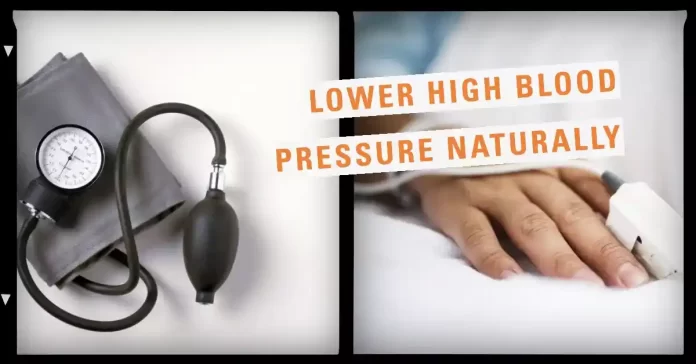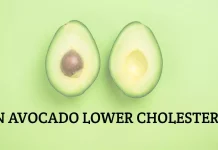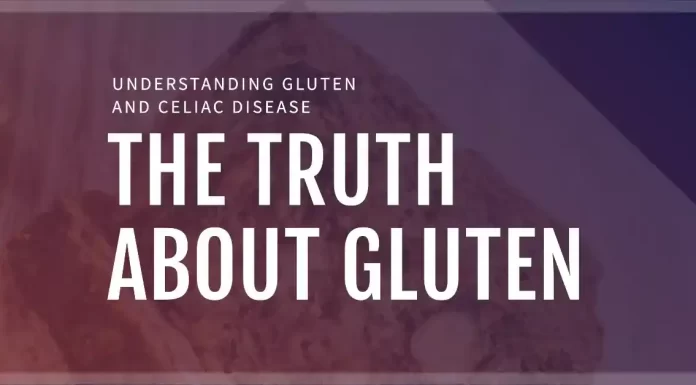
High blood pressure, also known as hypertension, can cause serious complications. You can lower it naturally without relying on medication, while doctors often prescribe medication to control blood pressure. This article explores beneficial strategies for achieving and maintaining optimal blood pressure levels through natural means.
Lifestyle Changes for Natural Blood Pressure Management
Adopt a Healthy Diet
A balanced and nutritious diet plays a crucial role in managing blood pressure. Incorporate the following dietary practices:
a. Increase your intake of fruits and vegetables: These are rich in vitamins, minerals, and fiber, which can help lower blood pressure. Make an effort to at least five servings of fruits and vegetables daily.
b. Embrace whole grains: Choose whole-grain bread, rice, and pasta over refined grains. Whole grains are high in fiber and can contribute to better heart health.
c. Reduce sodium intake: Limit your consumption of high-sodium foods like processed meats, canned soups, and salty snacks. Opt for fresh and homemade meals, and use herbs and spices to add flavor instead of salt.
d. Include potassium-rich foods: Potassium helps regulate blood pressure. Incorporate potassium-rich foods like bananas, oranges, spinach, and sweet potatoes into your diet.Engage in Regular Physical Activity
Research has demonstrated that regular exercise lowers blood pressure and enhances cardiovascular health. Set a target of engaging in at least 150 minutes of moderate-intensity aerobic activity each week. Activities like brisk walking, swimming, cycling, or dancing can integrate an exercise routine that brings you joy and becomes a consistent part of your lifestyle.Manage Stress
Chronic stress can contribute to high blood pressure. Engaging in stress-reducing activities can help manage blood pressure levels. Try incorporating relaxation techniques like deep breathing exercises, meditation, yoga, or spending time in nature. Find what works best to alleviate stress and make it a regular practice.Maintain a Healthy Weight
Maintaining a healthy weight is essential for blood pressure management. Losing excess weight achieves significant reductions in blood pressure. Focus on a well-balanced diet, portion control, and regular exercise to achieve and maintain a healthy weight range.
a. Follow a balanced, calorie-controlled diet: Ensure your calorie intake aligns with your energy needs to support gradual, sustainable weight loss.
b. Practice portion control by being mindful of serving sizes to prevent overeating. Be attentive to your body’s hunger and fullness cues.
c. Regular physical activity: Combine a healthy diet with regular exercise to promote weight loss and maintain a healthy weight.Limit Alcohol Consumption
Excessive alcohol consumption can raise blood pressure. If you decide to consume alcohol, do it moderately. It means up to one drink per day for women and up to two drinks for men. If possible, consider reducing alcohol intake or eliminating it for better blood pressure control.Quit Smoking
Smoking harms blood vessels and raises blood pressure. Quitting smoking not only benefits blood pressure but also enhances overall cardiovascular health. Seek assistance from healthcare professionals or support groups to achieve successful smoking cessation.Get Sufficient Sleep
Quality sleep is crucial for maintaining optimal blood pressure levels. Aim for at least 6-8 hours of uninterrupted sleep each night. Establish a bedtime routine, create a comfortable sleep environment, and prioritize sleep hygiene practices like avoiding electronic devices before bed.Monitor Your Blood Pressure
Regularly monitor your blood pressure at home with a reliable blood pressure monitor. It allows you to keep track of any fluctuations and make necessary adjustments to your lifestyle. Consult with your healthcare provider to understand your target blood pressure range and how to interpret the readings accurately.
Final Words
Lowering high blood pressure naturally without medication is achievable through lifestyle modifications and self-care practices. You can effectively maintain optimal blood pressure levels and enhance your overall well-being by adopting a healthy diet, engaging in regular physical activity, managing stress, and making positive choices. Remember, consistency and commitment to these lifestyle changes are the solutions. Always consult your healthcare professional for guidance and monitoring to ensure the best approach for your needs.
Frequently Ask Questions (FAQs)
Can lifestyle changes alone effectively lower high blood pressure?
Yes, lifestyle changes can be highly effective in lowering high blood pressure. You can significantly reduce your blood pressure levels naturally by implementing healthy habits such as a balanced diet, engaging in regular physical activity, managing stress, and making other lifestyle adjustments.
What dietary modifications can help lower blood pressure naturally?
Several dietary modifications can contribute to lowering blood pressure naturally. These include increasing the intake of fruits and vegetables, embracing whole grains, reducing sodium consumption, including potassium-rich foods, and opting for lean protein. A well-rounded and nutritious diet plays a solution role in managing blood pressure.
What is the recommended amount of physical activity for managing blood pressure?
To Manage blood pressure, experts recommend at least 150 minutes of moderate-intensity aerobic activity each week. You can achieve this by participating in brisk walking, swimming, cycling, or dancing. Regular physical activity strengthens the heart, improves circulation, and enhances cardiovascular health.
Are there specific relaxation techniques that can help reduce stress and lower blood pressure?
Yes, several relaxation techniques can effectively reduce stress and lower blood pressure. Some popular relaxation methods include practicing deep breathing exercises, meditation, yoga, progressive muscle relaxation, and spending time in nature. Find the ones that resonate with you and practice them regularly to help manage stress and promote healthier blood pressure levels.
Can weight loss contribute to lowering high blood pressure naturally?
Yes, weight loss can significantly contribute to lowering high blood pressure naturally. Excess weight increases strain on the heart and blood vessels, causing elevated blood pressure. You can effectively lower your blood pressure and improve overall cardiovascular health by adopting a balanced diet, controlling portion sizes, engaging in regular physical activity, and reaching a healthy weight range.









